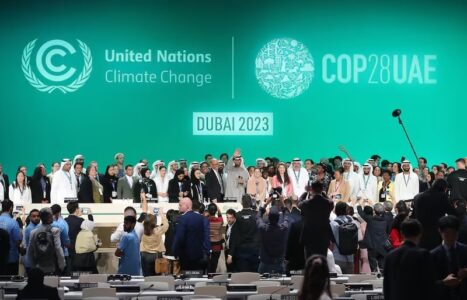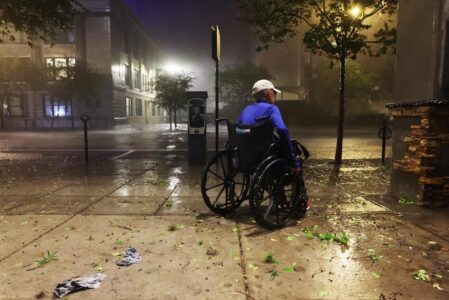A looming 198-country climate change summit in Azerbaijan must “provide the means” to put the green ideals agreed in Dubai last year into practice, the UAE’s Cop28 President said on Thursday.
Dr Sultan Al Jaber said crunch talks on finance must “meet the size of the challenge” as vulnerable countries pin their hopes on a generous funding deal at Cop29. Negotiators began two days of “pre-Cop” talks in Baku on Thursday, with key issues still in the balance.
The UN’s climate chief Simon Stiell told negotiators to make the November summit an “enabling Cop” that helps “translate the pledges made last year in the historic UAE Consensus into real-world, real-economy results”. The goals include a switch away from fossil fuels and a massive expansion of clean energy.

Achieving just two of the UAE goals – trebling renewable energy firepower and doubling the rate of energy efficiency improvements – would take the world two thirds of the way to its overall energy targets, said Dr Al Jaber, the UAE’s Minister of Industry and Advanced Technology.
A finance deal at Cop29 “must provide the means to implement the UAE Consensus. The quantum we agree on should meet the size of the challenge”, Dr Al Jaber said. He said delegates in Baku did not need to “reinvent the wheel” but “follow through on what we all signed up to” at Cop28.
“As we gather against a backdrop of continuing geopolitical conflict, let us again find common cause across every pillar of the climate agenda. What we delivered in Dubai, we must build on here in Baku. Let us once again unite, act and deliver.”
Finance talks
The centrepiece of Cop29 will be a new funding target to replace a previous pledge of $100 billion a year for developing countries, which became a sore point after a 2020 deadline was missed. No new figure has yet been agreed, but island states are pushing for a sum in the trillions.
The money will cover not just wind turbines and solar panels but also resilience efforts to prepare for floods, extreme weather and life on a hotter planet. Donors are also being pressed to raise their contribution to a disaster recovery fund established at Cop28, which has about $800 million of pledges so far.
Mukhtar Babayev, Azerbaijan’s President-designate for Cop29, said extreme weather had caused $41 billion worth of damage in the first six months after the UAE summit. He said the imminent Hurricane Milton in Florida showed that “everyone is affected”.

Although Azerbaijan’s Cop29 team is “seeing some signs of possible convergence on certain elements of the goal”, Mr Babayev warned negotiators they “cannot afford to leave too much to be decided at the summit” as they embark on pre-Cop talks.
Countries must “decide as many of the issues as possible as now” and “cannot afford distraction and political point-scoring”, he said. “We need to take seriously the responsibility for identifying a number over a time frame and come forward with solutions.”
The UN’s Mr Stiell said an ambitious new funding goal would be “in every nation’s and every economy’s interest” because it would be impossible to cut greenhouse gas emissions to the desired extent without enough money.
“If every country has the means to take much stronger climate action, slashing emissions and building resilient communities and galvanising supply chains can be achieved,” he said. Some rich countries want to see the list of donors expanded to include emerging economies.
Armed with whatever funding pledges emerge from Cop29, countries will be expected to submit new national go green-plans by the time they meet in Brazil in 2025. A “troika” of the UAE, Azerbaijan and Brazil is pushing for an ambitious set of policies.
The next round of plans is “not only crucial for keeping 1.5°C within reach, they represent a massive opportunity for socioeconomic development”, Dr Al Jaber said, referring to the world’s overall goal for limiting global warming. Temperatures were about 1.36°C above the pre-1900 baseline last year.



